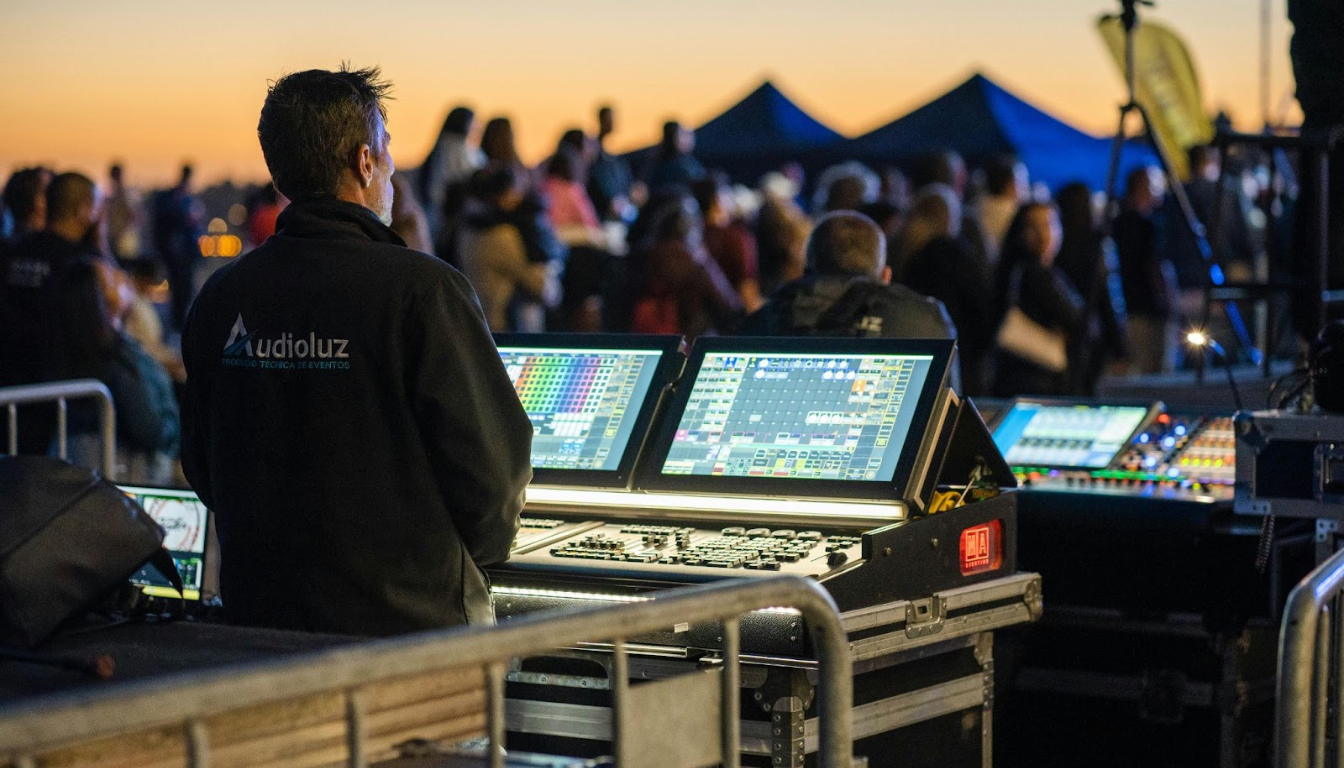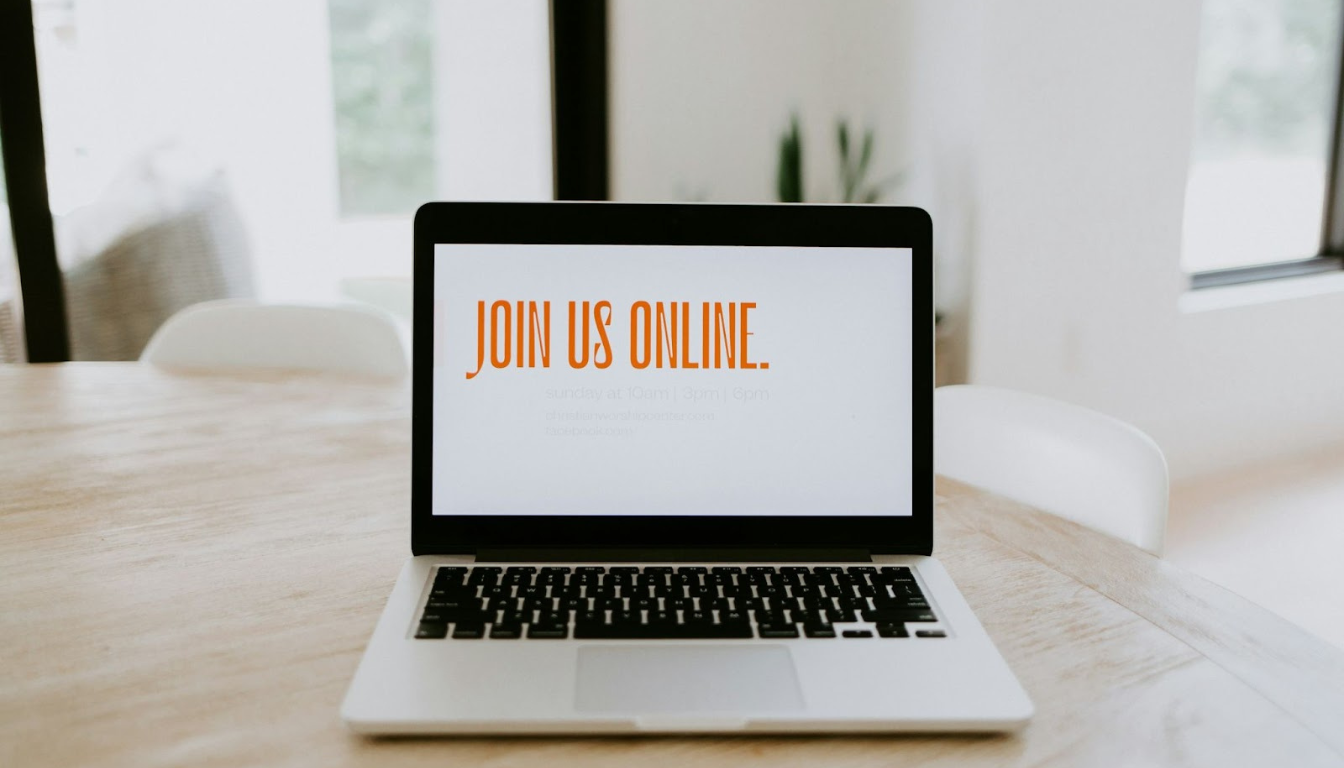Top Tech Tools for Retreats: Streamline Your Next Event

Organizing a retreat doesn’t have to be daunting. With the right tech tools for retreats, you can streamline event management from start to finish. This article covers must-have technologies that will help you plan and execute a seamless retreat.
Key Takeaways
- Event management software is essential for streamlining planning processes, offering features like registration, scheduling, and communication in one platform.
- Mobile event apps enhance attendee engagement through personalized agendas, real-time updates, and interactive features, creating a more enjoyable experience.
- Leveraging AI, automation, and analytics can significantly improve event efficiency and decision-making, helping planners to optimize future corporate retreats.
Essential Event Management Software for Corporate Retreats

Event management software is the backbone of modern event planning. These platforms integrate all aspects of event operations into a manageable process, allowing event organizers to streamline tasks such as event registration software, scheduling, communication, and data collection. A comprehensive event management platform ensures every detail is covered, leading to effective event management and a more efficient and successful event.
The benefits of event technology are manifold:
- It automates routine tasks.
- It provides valuable insights through data collection and analysis.
- It integrates various tools into a single system, significantly enhancing attendee engagement.
- It streamlines the entire event planning process.
Here are some specific types of event management software that can simplify your corporate retreat.
All-in-One Event Management Platforms
All-in-one event management platforms are the Swiss Army knives of event planning. They integrate multiple functionalities into a single interface, making it easier for event organizers to manage events effectively. These functionalities often include:
- Registration
- Scheduling
- Communication
- Attendee management
- Budgeting
- Collaboration
Providing a comprehensive all in one solution for all event setups needs.
One of the standout features of these platforms is the integration of mobile event apps. These apps offer:
- Digital ticketing, reducing the need for paper and making events more sustainable
- Real-time updates
- Personalized agendas
- Interactive features that keep attendees engaged and informed throughout the event.
For example, Offsite simplifies corporate retreat planning by offering curated venues and vendors globally, ensuring a seamless booking experience. An all-in-one event management platform can transform a standard event into a unique and memorable experience for all attendees.
Event Budgeting Tools
Budgeting is a critical aspect of event planning, and having the right tools can make all the difference. Event budgeting software tracks your budget and monitors spending, providing automated data that helps in demonstrating the financial health and ROI of the event. Key aspects of a retreat budget include:
- Venue
- Catering
- Marketing
- More, all of which need to be meticulously planned and tracked.
A clear financial plan helps you stay within your limits and make every dollar count. With event budgeting tools, you can keep a close eye on your expenses, make adjustments as needed, and ensure that your event remains financially viable. These tools are indispensable for event planners looking to manage their finances effectively and ensure a successful event.
Venue Sourcing Software
Finding the perfect venue for your corporate retreat can be a time-consuming process, but venue sourcing software can streamline this task significantly. These tools facilitate the comparison of venue contracts and details, enhancing decision-making efficiency and ensuring that you find the best fit for your event.
Users can select preferred venues and vendors, send booking requests within minutes, and receive detailed proposals within 48 hours. This significantly reduces the time and effort involved in venue selection and coordination, allowing you to save time and focus on other critical aspects of event planning and event reservations.
Enhancing Attendee Engagement with Mobile Event Apps

Mobile event apps have become indispensable tools for engaging attendees and enhancing their experience at corporate retreats. These apps provide attendees with:
- Real-time event information
- Schedules
- Speaker bios
- Maps ensure they have all the information they need at their fingertips. Mobile event apps significantly boost attendee engagement, leading to greater satisfaction and retention.
Customizable mobile event apps allow for personalized agendas, live polling, and social interactions, further enhancing the attendee experience. Here are some specific features that make these apps invaluable for event organizers.
Personalized Agendas
Personalized agendas are a great way to tailor the event experience to individual preferences and interests. Attendees can use mobile event apps to customize their schedules by choosing sessions that align with their interests. This not only enhances their engagement but also ensures they get the most out of the event.
The transition to digital formats for event materials not only cuts paper waste but also enhances accessibility for attendees. With instant updates and personalized schedules, attendees can stay informed and engaged without the need for printed materials.
Real-Time Updates
Real-time updates are crucial for ensuring the smooth execution of events. Mobile event apps enable organizers to disseminate immediate notifications about essential changes during the event updates. Timely notifications help keep both organizers and attendees informed, enhancing engagement and responsiveness.
Real-time notifications through mobile event apps contribute to a better-organized and more efficient event experience. Whether it’s a last-minute schedule change or an important announcement, real-time updates ensure that everyone stays on the same page.
Interactive Features
Interactive features within mobile event apps play a significant role in enhancing attendee engagement. These features include:
- Live streaming, which allows real-time interaction between in-person and virtual attendees, creating a more inclusive event experience.
- Chat, which boosts viewer participation during events.
- Polls, which also increase viewer engagement during events.
Engagement tools within mobile apps, such as gamification, encourage attendees to interact and participate actively in the event. These features not only make the event more enjoyable but also promote greener practices among participants by reducing the need for physical materials.
Leveraging AI and Automation in Event Planning
AI and automation are transforming the landscape of event planning. These technologies facilitate real-time data collection, feedback, and networking opportunities, significantly enhancing event effectiveness. By streamlining operations and providing valuable insights, AI and automation contribute to a seamless event experience.
Measuring and activating attendee data is essential for making informed, data-driven decisions in event planning. Here are specific AI and automation tools that can enhance your next corporate retreat.
AI Chatbots for Attendee Support
AI chatbots are becoming increasingly popular for providing immediate assistance and information to attendees. These chatbots utilize natural language processing to understand queries and deliver relevant responses in real-time, enhancing the overall experience during retreats. Instant support from AI chatbots leads to increased engagement as attendees can access information without delay, improving their satisfaction.
Integrating AI chatbots into the retreat experience fosters a more interactive environment that promotes attendee involvement. These chatbots are a valuable tool for event organizers looking to enhance attendee support and engagement.
Automated Scheduling Tools
Automated scheduling tools are a game-changer for event planners. These tools:
- Handle scheduling tasks like coordinating availability among planners and vendors
- Prevent conflicts and ensure a smooth event flow
- Synchronize calendars and coordinate multiple schedules seamlessly
- Save significant time for event planners
These tools often include features for room management and real-time updates, preventing scheduling conflicts and optimizing event logistics. With automated scheduling, you can ensure that your event runs smoothly and efficiently using event scheduling software, leading to smooth event execution.
Data Analytics for Improved Decision Making
Data analytics is a powerful tool for improving decision-making in event planning. AI-driven analytics can analyze attendee demographics and behaviors, allowing event organizers to refine their strategies and tailor experiences to audience preferences. This data-driven approach helps in identifying successful elements and areas needing improvement, enabling better planning for future events.
Data analytics enables event organizers to track attendee engagement, forecast event attendance patterns, and optimize marketing strategies while ensuring data security. This not only enhances the attendee experience but also contributes to the overall success of the event.
Virtual and Hybrid Event Solutions

The rise of virtual events and hybrid events has opened new avenues for event organizers. Hybrid events, which combine in-person and virtual components, allow for a broader reach and greater engagement. These events accommodate remote participants while maintaining the interactive and engaging elements of in-person events.
Virtual and augmented reality technologies continue to evolve, becoming more accessible and affordable for event planners. Here are some specific solutions available for virtual and hybrid events.
Virtual Event Platforms
Virtual event platforms enable event professionals to self-broadcast events in real-time, offering capabilities such as live streaming, virtual networking, and interactive exhibits. These platforms ensure smooth operation through tested streaming technologies and confirmed access for virtual attendees.
Engagement channels for virtual attendees should include live chats and Q&A sections, enhancing interaction and participation. Virtual event platforms allow you to host conferences, trade shows, smaller meetings, and social events virtually.
Hybrid Event Integration
Creating hybrid events requires careful planning to ensure engagement for both in-person and remote attendees. These events blend in-person and virtual elements, creating an inclusive experience for all attendees.
Hybrid event solutions typically allow for simultaneous participation, enhancing overall engagement and ensuring no one misses out.
Live Streaming and Recording
Live streaming retreat sessions enable real-time participation for remote attendees, expanding the reach of the event. By integrating live streaming, retreats can engage a larger audience and create inclusivity, allowing more attendees to participate regardless of location.
Recording content from retreat sessions allows attendees to revisit valuable insights and discussions after the event, aiding in retention and application of learned material. Offering recorded sessions increases the value of the event as attendees can access the content at their convenience, ensuring they do not miss important information.
Streamlining Logistics with Advanced Event Technology

Logistics are the backbone of any successful event, and advanced event technology can significantly streamline these processes. Partnerships with technology vendors can offer access to specialized expertise that improves event outcomes. By leveraging the latest event management technologies, companies can simplify logistics, enhance communication, and improve the overall retreat experience.
Establishing vendor partnerships can lead to cost savings through better pricing and reduced administrative expenses. Offsite integrates tech tools for retreats and stays ahead of event technology trends for 2025 to help companies manage every detail efficiently.
Here are some specific technologies that streamline operations logistics.
Check-In and Registration Systems
Technology plays a crucial role in simplifying the check-in process, making it more efficient and secure. Key technological features include:
- Attendees can check in using facial recognition technology or by scanning QR codes, expediting the process and reducing queues.
- Self-service kiosks equipped with facial recognition technology enhance the registration process.
- On-demand badge printing offered by kiosks further expedites check-in.
Automated event registration systems send confirmations and reminders, enhancing communication with attendees. Utilizing handheld badge scanners and passive RFID readers facilitates effective attendee tracking throughout the event to collect attendee information. A smooth check-in process significantly sets a positive tone for the event, impacting the overall attendee experience.
On-Site Communication Tools
Real-time communication tools are essential for facilitating interaction and workflow during retreats. These tools help event staff coordinate logistics and respond quickly to any issues that arise, ensuring smooth operations. Mobile event apps and other communication tools enable seamless interaction between attendees and organizers, enhancing the overall event experience.
Instant updates and real-time communication allow organizers to address problems promptly, ensuring the event runs smoothly and efficiently. These tools are indispensable for in-person events, where rapid response to logistical challenges is critical.
Venue Management Software
Venue management software helps optimize space usage by enabling planners to visualize layouts and manage resources effectively. Event diagramming tools provide better planning control over the event layout, allowing for more precise coordination of space and resources.
Venue management software helps event planners streamline logistical aspects of planning and executing an event, ensuring everything runs smoothly for event managers. This event planning software is particularly useful for large events where managing multiple spaces and resources can be challenging, including sponsor management, exhibitor management, various event management software options, and event management tools.
Sustainability in Event Planning

Sustainability has become a critical consideration in event planning. The events industry is increasingly adopting sustainable practices to manage energy consumption, waste, and emissions. Technology enables event organizers to promote eco-friendly practices and reduce the environmental impact of their events.
From using eco-friendly event apps to transitioning to digital materials, there are numerous ways to make events more sustainable. Here are some specific technologies and tools that promote sustainability in event planning.
Eco-Friendly Event Apps
Eco-friendly event apps play a pivotal role in promoting sustainability among attendees. OLIO, for example, is an innovative app aimed at reducing food waste by connecting users with surplus food and materials from events. Many event apps provide analytics to track energy consumption and environmental impact in real-time, aiding in future planning and promoting eco-friendly practices.
Eco-friendly event apps help organizers minimize waste and promote sustainability effectively during their events. These apps are an essential tool for event planners looking to reduce their environmental footprint and engage attendees in sustainable practices.
Digital Event Materials
Switching to digital resources can significantly lower paper waste in event planning and execution. Transitioning from paper to digital materials for events represents a significant shift towards more sustainable practices. By eliminating the need for printed programs and schedules, digital materials lessen the environmental footprint and enhance accessibility for attendees.
Adopting digital formats for event materials significantly contributes to sustainability by reducing the reliance on physical printing. This transition not only benefits the environment but also provides a more convenient and accessible experience for attendees.
Carbon Footprint Tracking Tools
Tools that measure an event’s carbon footprint empower organizers to make informed decisions about reducing emissions and enhancing sustainability. Certain tools enable event planners to assess and manage their events’ carbon footprints, promoting eco-friendly decision-making.
Carbon footprint tracking apps can provide insights into the environmental impact of venue choices and catering options. By utilizing these tools, event planners can optimize their choices regarding venues and catering to minimize environmental impacts and promote sustainability.
Post-Event Analysis and Reporting
Post-event analysis is essential for optimizing future retreats, providing insights into participant engagement and overall success. Utilizing analytics allows event planners to:
- Identify successful elements and areas needing improvement post-event.
- Collect real-time data and feedback through technological tools.
- Enhance the attendee experience.
- Inform future event decisions.
Engagement metrics, session attendance, and feedback tallies are key metrics used for post-event performance analysis. Follow-up emails serve to thank participants, share highlights, and request feedback, which is vital for continuous improvement.
Here are some specific tools that aid in post-event analysis and reporting.
Feedback Collection Tools
Event technology tools like e-posters and surveys enhance attendee involvement by allowing feedback and bookmarking options. Using platforms like Alchemer allows event organizers to gather participant feedback effectively and securely. Gathering attendee feedback is crucial for understanding participant satisfaction and improving future events.
Utilizing post event surveys can provide insights into attendee satisfaction levels, helping planners identify areas for improvement and ensure that future events meet attendee expectations.
Event Performance Metrics
Feedback collection provides a steady stream of information to gauge event success. Measuring event data helps improve attendee experience, prove event ROI, and measure the success of marketing efforts. By analyzing event impact and adapting strategies, organizations can improve ROI for future events.
Key performance indicators can include total registrations, audience engagement, and session feedback. Analyzing attendee interactions can provide critical insights into engagement levels during the event, helping planners tailor future events to better meet audience needs.
ROI Calculation Tools
ROI calculation tools help assess the financial effectiveness of an event by comparing costs against generated revenue. Key performance metrics for measuring event ROI include lead generation and session attendance. Additionally, attendee engagement is also an important factor.
By utilizing these tools, event planners can assess the financial performance of events and make informed decisions to improve ROI for future events. These tools are essential for demonstrating the value of events and ensuring their financial viability.
Partnering with Event Technology Vendors
Partnering with event technology vendors is vital for enhancing retreat experiences and acquiring additional resources. Using partner communication and planning software facilitates collaboration and minimizes errors during event management. By keeping up with the latest event technology trends, planners can deliver exceptional experiences to attendees.
Event technology vendors play a crucial role in providing essential tools to create engaging event experiences for event attendees. An event vendor marketplace helps planners find reliable local partners for various services such as equipment and catering.
Here are some specific aspects of partnering with event technology vendors.
Selecting the Right Vendor
Vendor evaluation should focus on their ability to meet specific event needs and provide innovative solutions. Choosing the right technology vendor should involve assessing their reliability and understanding their service offerings.
Choosing the right vendors ensures planners have the necessary tools and support to create a successful event. This includes evaluating vendors’ experience, technology capabilities, and ability to deliver on their promises.
Benefits of Vendor Partnerships
Vendor partnerships bring specialized expertise and knowledge critical for event success. Integrating event tech with other providers enhances functionality and improves the overall event experience. Vendor sourcing is essential for event success, ensuring access to the right resources and expertise.
Vendor coordination involves evaluating and coordinating with vendors to align with event requirements. By establishing strong vendor partnerships, planners can enhance the quality and efficiency of their events.
Case Studies of Successful Partnerships
Successful collaborations between event planners and technology vendors can lead to innovative solutions that enhance the overall retreat experience. One notable partnership involved an event organization collaborating with a mobile app developer to enhance attendee engagement through personalized agendas. This collaboration resulted in higher attendee satisfaction rates and improved networking opportunities during successful events.
Ultimately, choosing the right technology vendors is crucial for achieving success in corporate retreats and ensuring a memorable experience for all participants.
Summary
Leveraging the right event technology tools can transform your corporate retreat into a seamless and engaging experience. From essential event management software to post-event analysis, these tools streamline every aspect of the event planning process. By enhancing attendee engagement, promoting sustainability, and utilizing advanced technology, you can ensure a successful and memorable retreat.
As you plan your next corporate retreat, consider partnering with technology vendors and exploring the latest event management technologies. By doing so, you can create an event that not only meets your goals but also exceeds attendee expectations. Embrace the power of technology and make your next event a resounding success.
FAQs
- What is the main purpose of event management software?
The main purpose of event management software is to streamline all aspects of event organization, including registration, scheduling, communication, and data collection, making the entire process more manageable.
- How do mobile event apps enhance attendee engagement?
Mobile event apps enhance attendee engagement by delivering real-time information, personalized agendas, and interactive features like live polling and social interactions, leading to a more satisfying experience. These tools help keep attendees informed and connected throughout the event.
- What are the benefits of using AI chatbots for attendee support?
Using AI chatbots for attendee support significantly enhances engagement and satisfaction by offering immediate assistance and relevant information in real-time through natural language processing. This ensures that attendees feel supported and informed throughout their experience.
- How do carbon footprint tracking tools promote sustainability in event planning?
Carbon footprint tracking tools promote sustainability in event planning by offering insights into the environmental impacts of venue and catering choices, allowing planners to make informed, eco-friendly decisions and reduce overall carbon emissions. This proactive approach enhances the sustainability of events and aligns with growing environmental consciousness among attendees.
You may also like
Unique spaces for your next offsite
Find distinctive venues for your upcoming corporate retreat.
Stay Updated with Our Insights
Get exclusive content and valuable updates directly to you.







